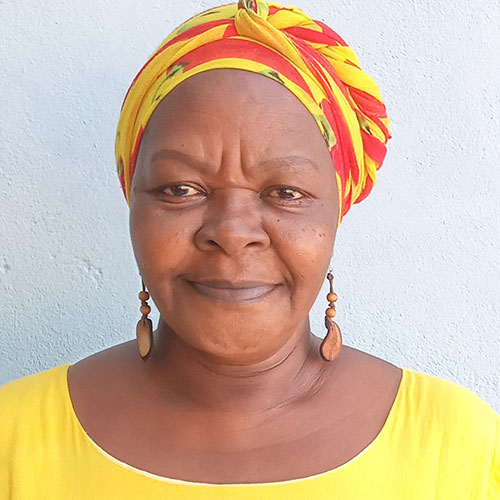Domestic Workers Union of Rio de Janeiro guarantees rights to members
With a history of women's activism, Domestic Workers Union of Rio de Janeiro serves as a support point for unionized and non-unionized people alike


In 1972, Law no. 5.859 regulated the profession of domestic worker and formalized a few rights, such as the contract through registration in a work card and access to Social Security.
Mazir Maria de Oliveira, better known as Zica, 89 years old, from Minas Gerais, with more than 40 years of struggle for the rights of domestic workers, graduated in Pedagogy, Social Service and post-graduated in Psychology, says that this was the first achievement of the entire national struggle of the then called Associações de Profissionais de Trabalhadores Domésticos(‘Associations of Professionals of Domestic Workers’ in English).
The union is open to receive complaints, grievances and guidance on rights. For her, the participation of the class strengthens the struggle and the Union. The body provides great security for domestic workers, says Dona Zica: “it is a space where everyone in the class, unionized or not, should participate, seeking information about their rights”.
How it started
The creation of the union was a long process. Until the 1960s, there was no struggle for domestic workers, says Ms. Zica. She says that the Catholic Church had always been her focus of discovery, and it was precisely her parish that invited her and two other colleagues, also domestic workers, to join a men’s group, which was the Pastoral do Trabalhador (‘Workers’ Pastoral’).
This pastoral was aimed at encouraging awareness of the struggle for workers’ rights. They agreed to participate, but they did not understand the language they spoke, such as Base Date, Collective Agreement and other expressions. For them, it was as if they were swear words.
So they decided to create their own group, just for domestic workers, where they could talk about their problems, their needs and exchange ideas. That was the challenge.
With this in mind, on May 1, 1976, the three workers founded a group of domestic workers in the Comunidade Vila Aliança, where they lived, in Bangu, West Zone of Rio. They organized themselves as a fighting group, but according to them, they were not aware of anything, they just called the other women to talk.
At the first meeting, the agenda was to talk badly about the bosses. They had no other subject, Dona Zica recalls. Today, she thinks it was strange, but she sees that meeting as an exchange of experiences. It was on that occasion that they realized, for example, how women experienced the workplace. There were respectful relationships, but there were also exploitative situations, she recalls.
The struggle of domestic workers
Dona Zica says that they started the group of domestic workers with a monthly meeting. They also looked for people who understood laws and social security. It was through this that they learned that there had already been a struggle of domestic workers, through a class association, since the 1960s, but they did not know.
So they went to the other association to find their colleagues. They set up a meeting and thus began to learn about everything that was happening in terms of domestic workers’ demands. Shortly afterwards, the two initiatives joined forces and created the Associação de Profissionais de Trabalhadores Domésticos do Município do Rio de Janeiro (‘Association of Professional Domestic Workers of the Municipality of Rio de Janeiro’).
It was only after the association had been established in 1976 that it became clear from the statute that anyone who provides domestic service in someone else’s home in exchange for wages is a domestic worker.
The foundation of the Domestic Workers Union of Rio de Janeiro
In 1978, the association began to participate in various discussion spaces outside Rio de Janeiro and they discovered that there was a struggle of domestic workers in various states of Brazil. Thus, they started an exchange of visits between associations. With this, a union was created between all these institutions. In the meantime, the West Zone group continued to grow.
In 1988, within the Constituent Assembly, the proposal for class associations to become unions arose. With the proposal approved, the Associação de Empregados Domésticos do Rio de Janeiro had its struggle strengthened: the Domestic Workers Union of Rio de Janeiro was finally created in 1989.
“It was a very long road, of many struggles and many achievements,” says Dona Zica, who was president of the Domestic Workers Union of Rio de Janeiro between 1982 and 1986.
According to Dona Zica, today the struggles of the Union remain the same and the companions remain combative as well. “We have a board involved in this reality of achievements and rights”, she reinforces.
Awareness
The union is not only for domestic workers who are being enslaved or exploited, recalls Dona Zica. “It is also for the domestic worker who already has awareness and rights, because she has to be ahead, she has to set an example, she needs to explain to her colleague who is coming, the ways of this conquest”, she says.
“Domestic worker, your work has value, do not allow abuse or disrespect within your work environment, seek your rights, join the Domestic Workers Union of Rio de Janeiro, contribute!”, invites Dona Zica.
So if you have been dismissed and do not know your rights, look for the Domestic Workers Union of Rio de Janeiro. The organization also offers legal assistance, and promotes training meetings. The directorate is open Monday to Friday, from 10 am to 4 pm.
Did you like the initiative?
Follow STD-RJ on Facebook and Instagram.
The Sindicato dos Trabalhadores Domésticos do Município do RJ (Domestic Workers Union of Rio de Janeiro) is located at Avenida Paulo de Frontin, 665.
Contacts: +55 (21) 2293-7270
WhatsApp: +55 (21) 98149-6310
Email: sindomesticas.rj@gmail.com



